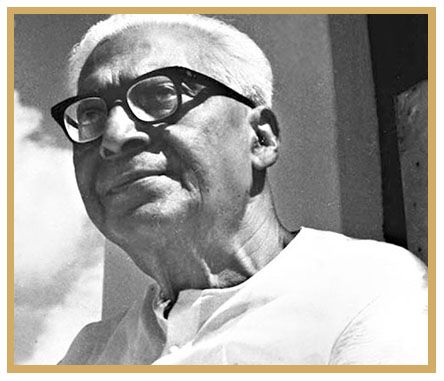Hiren Bose

Subscribe to read full article
This section is for paid subscribers only. Our subscription is only $37/- for one full year.
You get unlimited access to all paid section and features on the website with this subscription.
Not ready for a full subscription?
You can access this article for $2 , and have it saved to your account for one year.
- Born: 26 September 1903 (Calcutta)
- Died: 18 June 1987 (Calcutta)
- Primary Cinema: Hindi
An actor, director, music composer, story and screenplay writer, Hiren Bose was a multi-faceted talent of the early decades of Indian cinema. He was known for films such as Dharm Ki Devi (1935), Bhakta Jayadeva (1938), Meerabai (1933) and Dasi (1944). The Calcutta-based filmmaker worked during the silent era of Indian cinema, up until the mid-1950s.
Born on 26 September 1903 in Calcutta, Bengal Presidency, British India, he trained in Rabindra Sangeet and classical music. His musical capabilities earned him the titles Vidya Bhushan and Sangeet Ratna. He worked at HMV as a music director for a while, and soon moved to Bombay. He was said to have even influenced Anil Biswas to make the same move in dreams of bigger opportunities.
Making his foray into the film industry, he acted in films such as the Jyotish Bannerjee-directed drama film Rishir Prem (1931) alongside Charubala and Ahindra Choudhury, and Chup (1931) alongside Abhabati and Nibhanani Devi. Towards the Light (Udayer Pathey, 1944) saw him feature in the cast of the Bimal Roy directorial which told the tale of a girl who leaves her wealth behind to be with a writer, who is a man of ethics. He also acted in Sesh Raksha (1944) directed by Pashupati Chatterjee, starring alongside Ratin Banerjee and Manoranjan Bhattacharya.
As a director, among his earliest films was Chup (1931), the comedy which released at Chitra cinema, Calcutta. He went on to direct several films such as Mahua (1934), Dharma Ki Devi (1935), Piya Ki Jogan (1936), Mahageet (1937), Bhakta Jayadeva (1938), Africa Mein Hind (1939), Amar Geeti (1940), Kavi Joydev (1941), Dasi (1944), Banjarey (1948), Sree Tulsidas (1950), Ghungroo (1952), Rami Dhoban (1953), Ramman (1954), and Ektara (1957).
He is also credited with writing the screenplay/ story of Meerabai (1933) and Rajrani Meera (1933), and also composed music for the film Kavi Joydev (1941).
Retiring from the film world after his film Ektara in 1957, he continued to write non-film Bengali music which was usually sung by Hemant Kumar, and Kanan Bala, among others.
Hiren Bose passed away on 18 June 1987 in Calcutta. He was 83.
-
Filmography (2)
SortRole
-
Udayer Pathey 1944
-
Chup (Huss) 1931
-











.jpg)



